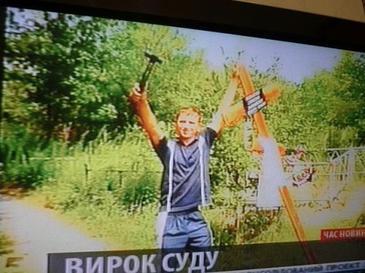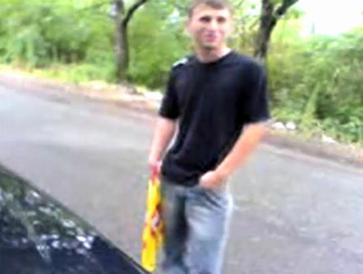
b: 1988
Summary
Name:
Viktor SayenkoNickname:
Dnepropetrovsk maniacYears Active:
2007Birth:
March 01, 1988Status:
ImprisonedClass:
Serial KillerVictims:
21Method:
Hitting with hammer / StabbingNationality:
Ukraine
b: 1988
Summary: Serial Killer
Name:
Viktor SayenkoNickname:
Dnepropetrovsk maniacStatus:
ImprisonedVictims:
21Method:
Hitting with hammer / StabbingNationality:
UkraineBirth:
March 01, 1988Years Active:
2007Date Convicted:
February 11, 2009bio
Viktor Sayenko was born on March 1, 1988, in Dnipropetrovsk, which was part of the Ukrainian SSR in the Soviet Union at the time.
murder story
The series of murders committed by Viktor Sayenko and his accomplices began late on June 25, 2007. Their first victim was 33-year-old Yekaterina Ilchenko, who was attacked while walking home. She was struck in the head with a hammer by Sayenko’s partner, Igor Suprunyuk. Within an hour, they killed Roman Tatarevich, a man sleeping on a nearby park bench. His injuries were so severe that he was rendered unrecognizable.

The following days saw a rapid escalation in violence. On July 1, two more victims, Yevgenia Grischenko and Nikolai Serchuk, were discovered murdered in a nearby town. The night of July 6 was particularly brutal, with three more murders committed. Egor Nechvoloda, a recent army recruit, was attacked while walking home from a nightclub. Later that night, they killed Yelena Shram, a night guard, and Valentina Hanzha, a mother of three.
On July 7, they attempted to murder two 14-year-old boys, killing one named Andrei Sidyuk. The violence continued with the murder of 48-year-old Sergei Yatzenko on July 12, and on July 14, they attacked 45-year-old Natalia Mamarchuk. Similar techniques were used in these attacks, often involving blunt objects like hammers.

From June 25 to July 16, 2007, a total of 21 murders were reported, with many of the victims being vulnerable individuals such as children, the elderly, and homeless people. The murders involved extreme cruelty, including mutilation and torture. Many victims were struck in the face, making identification difficult. Some were even robbed of their belongings, although most were left intact.
As the investigation began, initial connections between the murders were unclear. It wasn't until the attack on the two boys on July 7 that authorities made a significant breakthrough. The survivor, Vadim Lyakhov, became an important witness, helping detectives create sketches of the assailants.
A large investigation force was mobilized, with over 2,000 law enforcement officers involved. It wasn't until July 23, 2007, that Sayenko and Suprunyuk were arrested after attempting to sell a stolen cellphone in a pawn shop. Their companion, Alexander Hanzha, was also apprehended at home. Evidence collected included clothes, bloodstains, and video recordings of the murders.
The trial began in June 2008, where all three men faced 29 charges, including 21 counts of murder. Sayenko and Suprunyuk quickly confessed, though Suprunyuk later retracted his confession. The court trial highlighted the brutal nature of the crimes and the chilling demeanor of the killers. Ultimately, on February 11, 2009, Sayenko and Suprunyuk were sentenced to life imprisonment, while Hanzha received a nine-year sentence for robbery.
The motives for these murders remain largely speculative. Some media suggested the attackers intended to sell videos of their crimes, while authorities indicated that the murders were more like horrific entertainment for the attackers. Despite the overwhelming evidence against them, claims of innocence and conspiracy by the suspects' families continue to provoke debate and sustain interest in this case.